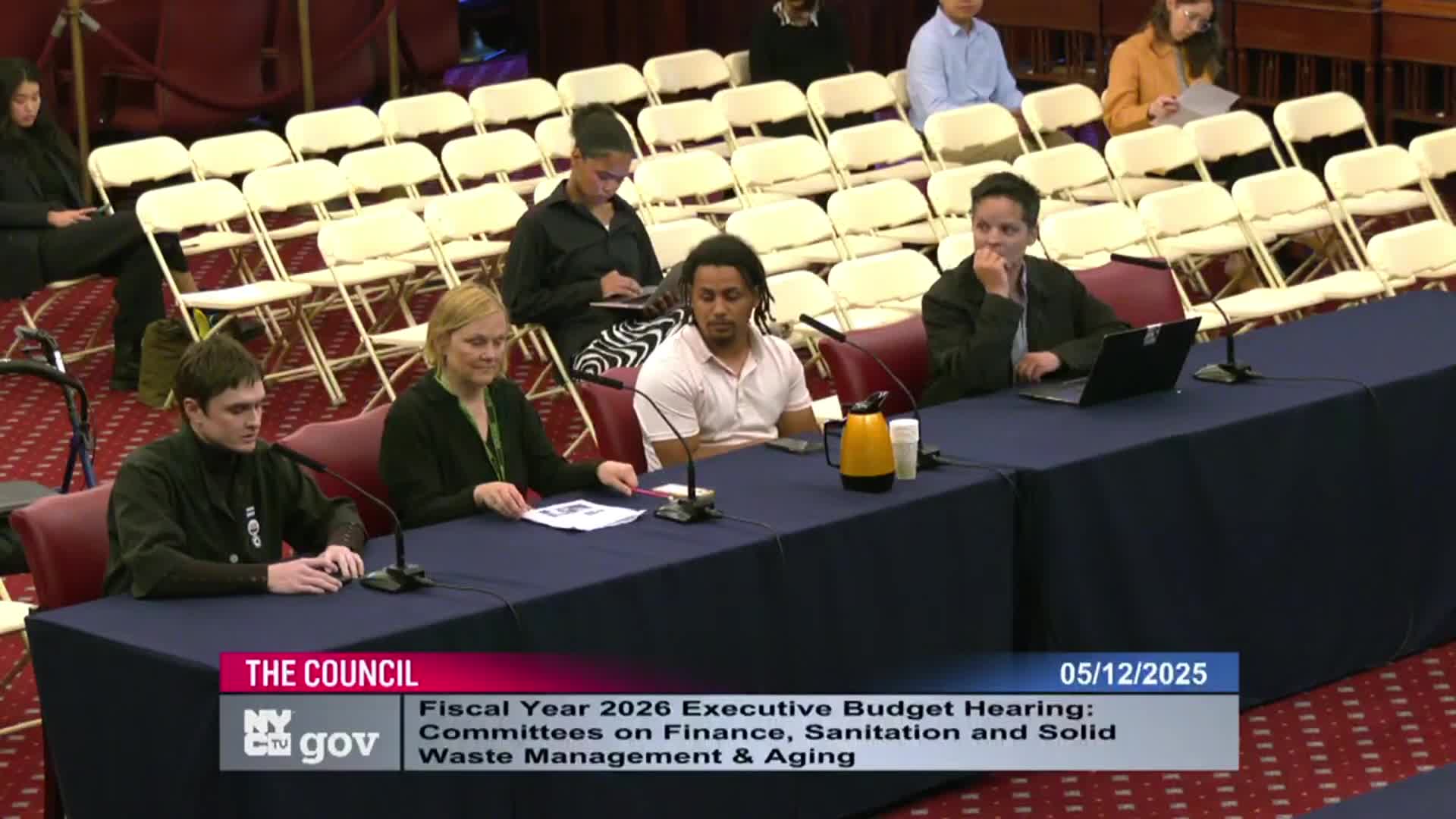New York City Council advocates for robust waste reduction programs amid slow implementation
May 12, 2025 | New York City Council, New York City, New York County, New York
Thanks to Scribe from Workplace AI , all articles about New York are free for you to enjoy throughout 2025!

This article was created by AI using a video recording of the meeting. It summarizes the key points discussed, but for full details and context, please refer to the video of the full meeting. Link to Full Meeting
Despite the city's commitment to reforming its solid waste system through landmark legislation, including citywide curbside organics recycling and the ambitious 0 Waste Act, progress has been slow. Current waste diversion rates remain alarmingly low, with only 17 to 20% of waste being diverted from landfills, and a mere 1% of residential food waste being recycled through existing programs. The Department of Sanitation (DSNY) has only implemented one of the planned twenty commercial waste zones, raising concerns about the effectiveness and equity of the waste management system.
Community advocates, including Rhonda Kaiser from Cafeteria Culture and Domingo Morales from Compost Power, emphasized the importance of local initiatives in reducing waste at the source. Kaiser reported that students participating in their food waste reduction program have successfully decreased cafeteria waste by 35 to 80%, while also increasing their food consumption. Morales highlighted the positive impact of composting on public housing communities, noting that it can reduce rodent populations and promote green spaces.
Both advocates called for immediate and adequate funding to support these initiatives, arguing that the current pace of implementation creates unnecessary barriers to achieving the city's sustainability goals. They underscored the need for a robust and rapid rollout of waste reduction programs, rather than a gradual approach that could prolong the challenges faced by the city's waste management system.
As the city grapples with these pressing issues, the discussions from the budget hearing signal a critical opportunity for stakeholders to collaborate on effective solutions that not only address waste management but also contribute to a healthier environment for all New Yorkers. The call for action is clear: without decisive funding and commitment, the city's ambitious waste reduction goals may remain out of reach.
Converted from 🔴 LIVE: Finance/Sanitation/Aging FY26 Executive Budget Hearing meeting on May 12, 2025
Link to Full Meeting
Comments
View full meeting
This article is based on a recent meeting—watch the full video and explore the complete transcript for deeper insights into the discussion.
View full meeting
